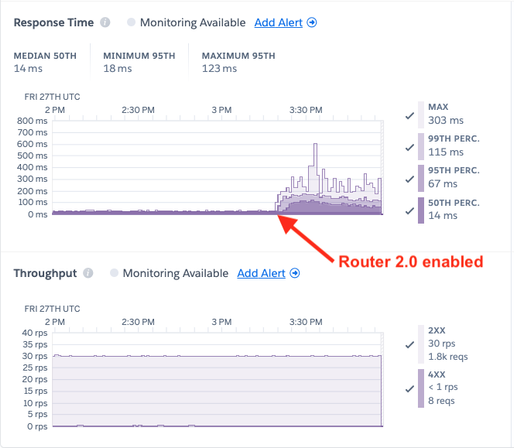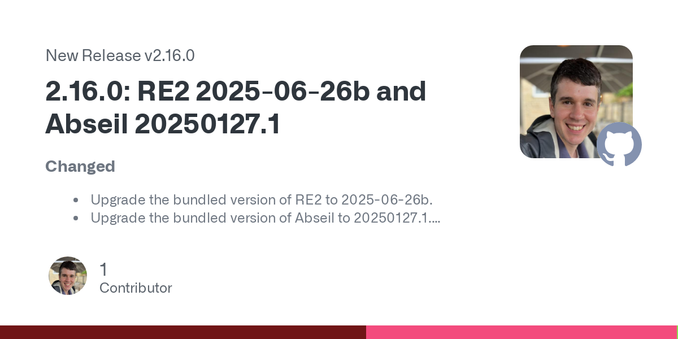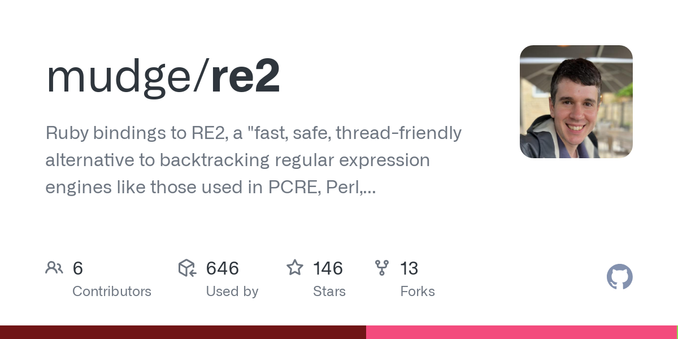| web | https://mudge.name |
| github | https://github.com/mudge |
| sponsor | https://github.com/sponsors/mudge |
mudge
- 196 Followers
- 68 Following
- 796 Posts
If you're on Heroku and haven't yet upgraded to Router 2.0, they will begin migrating Standard and Performance tier apps in two weeks' time on 16 July (we found all our smaller, staging apps had already been migrated).
If you're using Puma, take note of https://www.heroku.com/blog/pumas-routers-keepalives-ohmy/ and set `enable_keep_alives false` in your `config/puma.rb` (see https://devcenter.heroku.com/articles/deploying-rails-applications-with-the-puma-web-server#keepalive).
re2 2.16.0 is now out, upgrading the bundled RE2 to 2025-06-26b, Abseil to 20250127.1, and adding a new `RE2::Set#size` method for returning the number of patterns in a set.
Has anyone else been having issues installing packages on GitHub’s Windows runners with ruby/setup-ruby-pkgs recently due to dependency conflicts with GCC 15? Maybe @flavorjones?
Look at this tale of woe: https://github.com/mudge/re2/actions
Go 1.25 is coming soon, and the official release notes are pretty dry.
So I prepared an interactive version with lots of examples.
If you find yourself wanting to test a TCP service (e.g. that you can connect to memcached, Redis, or PostgreSQL), don’t have telnet installed but do have curl to hand: you can use curl as a telnet client with `curl telnet://localhost:11211`.
Heroku Key-Value Store (formerly Heroku Redis) has a default `maxmemory` policy of `noeviction` meaning it'll return errors if you reach the memory limit. To follow the Rails Guides recommendation for cache-only Redis servers (see https://guides.rubyonrails.org/caching_with_rails.html#activesupport-cache-rediscachestore), set the policy to `allkeys-lfu` instead:
```
$ heroku redis:maxmemory NAME --policy allkeys-lfu
```

Caching with Rails: An Overview — Ruby on Rails Guides
Caching with Rails: An OverviewThis guide is an introduction to speeding up your Rails application with caching.After reading this guide, you will know: What caching is. The types of caching strategies. How to manage the caching dependencies. Solid Cache - a database-backed Active Support cache store. Other cache stores. Cache keys. Conditional GET support.




